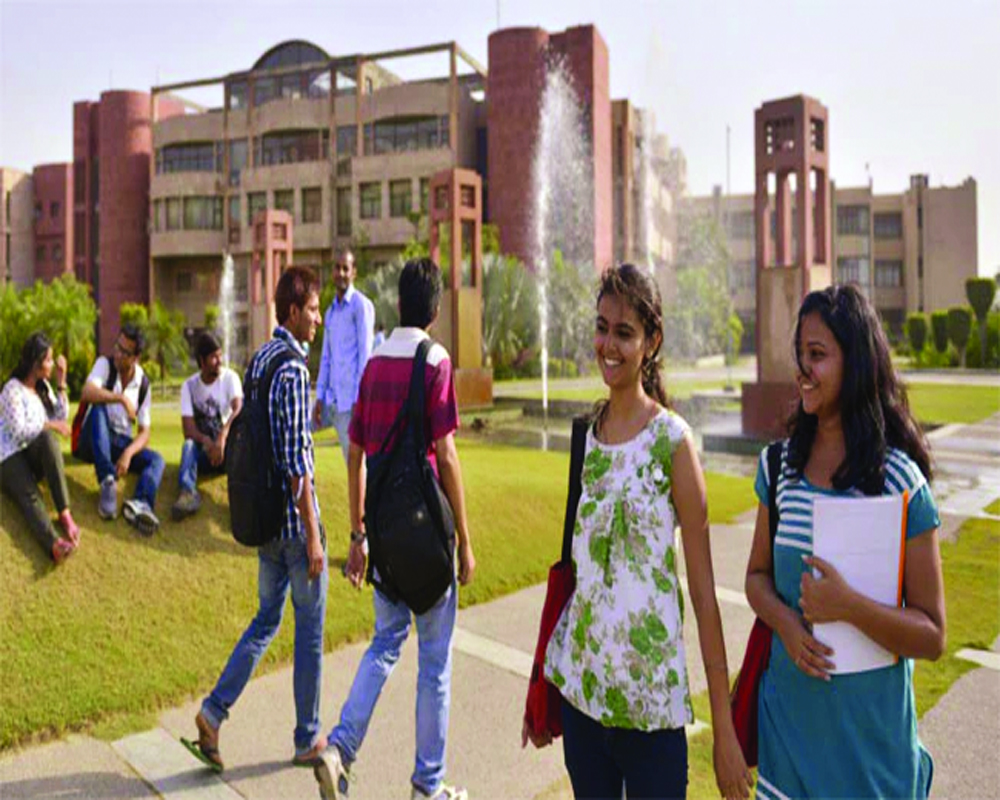New ways to improve the standard of education need to be adopted for a work culture of intimacy, involvement and best work practices
In the last few years, there has been visible signs of the higher education system favouring the West and the US and is yet to become a truly global phenomenon. India has emerged as the global hub of education with an inclusive quality, equity and access and new vigour and insights.
The global education system has started respecting the level of insight our education system has. There have been attempts to find a common ground to solve upcoming global challenges. Perhaps the pangs of the pandemic hasmade the world realize the urgent need for an alternative to the particularistic grounds of prowess which so far resulted in the supremacy of the economically prosperous system over the rest.
Some important ways to improve the standard of education need to be adopted for a work culture of intimacy and involvement and best work practices. The best thing about the National Education Policy is that it has recognized the need to expand and equip for all the best practices by creating an umbrella of professional fair treatment and recognizing the diversities and thereby bringing everyone together.
The strength of higher education system lies in creating its internal dynamism by ensuring inclusive growth. Human and financial relations and dealings are not as simple as they appear and require constant monitoring by competent authorities. The provisions of Multidisciplinary Education and Research Universities (MERUs) on par with IITs and IIMs, the National Research Foundation, the National Educational Technology Forum and Indian Institutes of Translation and Interpretation would create an environment for students to reach their best by encouraging academic excellence, embracing new information and opening new job-oriented courses. Besides, it would help in understanding social responsibility.
There is always a scope to improve course contents through academic discourse by bringing about changes through cognitive discourse. One is seeking multiple options in order to help form an integrated team consisting of meritorious members for holistic development of social sciences. Two, introducing new innovative mechanisms in social sciences designed to help students identify career goals available in that field.
Three, more integrated academic programs and services that provide supplemental support to both teaching and learning in diverse disciplines making it more relevant with present circumstances. Four, growth and enrichment of students and the community, both inside and outside of the classroom through community development exercises. Five, more research centres to ensure academic excellence in all disciplines. Six, exclusive intellectual skills designed to prepare students to engage in nuances of socio-economic and political issues related to global order.
There is a need to link school education with college and thereafter, research. Students must be sensitized through webinars which are low cost and quite intense interactive experiences. The role of mass media in political and social mobilization can be ensured through active participation of students in communicating initially with fellow students and then with the masses at large.
Increasing participating of students through myriad baskets of activities has to be ensured. This practice can gradually be transformed into community-wide physical activity campaigns to help the new generation understand the benefits of physical activities and coordination and cooperation to make them strong, energetic and sensible.
There is a need to provide an ambience of contiguity, working in unison, harmony and critical thinking through multidisciplinary scholarly culture for educational impetus. It is expensive as it only requires a positive attitude towards contribution and reiterating our commitment towards the nation.
A new culture of liberal literature is necessary to nurture a feeling of self-less service. This would ensure that students contribute ideas and engage with them in a creative environment.
Academicians are the epitome of sacrifice and inspiration whose relentless drive brings out the best in their students. Students can be taught how learning the essential precepts through practical teaching mechanisms can make them reflective. The philosophy of the academics should be to ensure that even the rural and left-out segments of the student population are guided to enter the mainstream of life. The mentors ought to broaden the horizon of comprehension and supplement the practice of argumentation with more inclusive and wholistic approach.
(The writer is a professor and expert on strategic affairs. The views expressed are personal.)

























